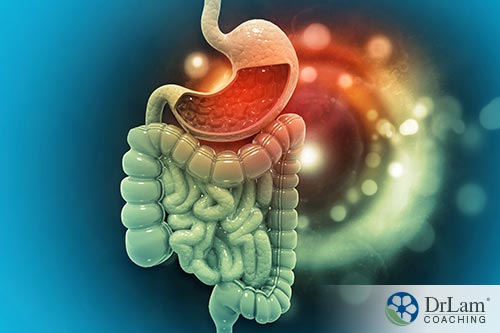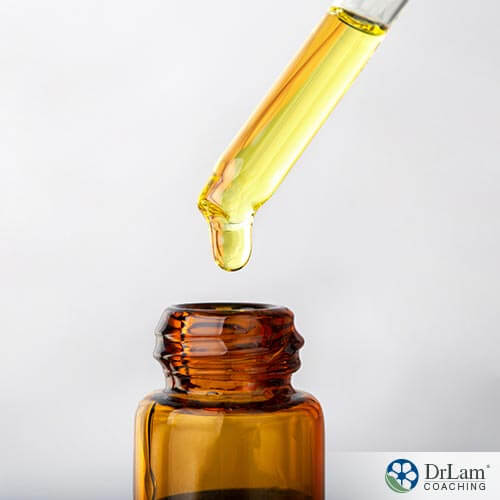 Have you heard of your “second brain?” When you consider all that happens in the gastrointestinal (GI) system, you begin to understand why it carries this label. Most people believe the GI system, or gut, only digests food. However, it does much more. Because of all the gut does for your body, it's essential that you take care of it. And CBD for gut health may be a new way to accomplish this.
Have you heard of your “second brain?” When you consider all that happens in the gastrointestinal (GI) system, you begin to understand why it carries this label. Most people believe the GI system, or gut, only digests food. However, it does much more. Because of all the gut does for your body, it's essential that you take care of it. And CBD for gut health may be a new way to accomplish this.
Digestive issues make up some of the most common disorders in the world. They affect a large percentage of the population. When these issues become severe, they open the door to other significant health issues. Keeping your digestive system healthy, on the other hand, increases the chances of living a healthy life.
Your gut contains the microbiome, a collection of trillions of bacteria, fungi, and viruses that all live in balance inside your body. One part of the job this microbiome carries out is the digestion of food and the absorption of nutrients. In addition to this, it produces the vast majority of neurotransmitters used by your body. Also, it regulates cognitive and physiological processes daily, including the immune system.
As long as this vast collection of microbes stays in balance, everything works well in the rest of your body. However, an imbalance, called dysbiosis, can occur and lead to significant health problems. This is one reason CBD for gut health assumes such importance.
The importance of good gut health comes to the fore when considering heart disease, also. Good gut health helps your heart by increasing the level of HDL cholesterol. Hardening of the arteries can come from poor gut health. When arteries harden, the risk of cardiovascular disease increases.
Also, poor gut health and the increase in bad bacteria may lead to obesity. This, in turn, can lead to heart attack, stroke, type 2 diabetes, and high cholesterol. Some of the bad bacteria in the gut can produce substances like trimethylamine N-oxide (or TMAO) that can block arteries and bring on a stroke. At least one study has shown that a healthy gut helped in preventing coronary artery disease.
In addition, your gut health influences your mental health. The vagus nerve transmits information from the brain to the gut and vice versa. The good bacteria in the gut produce serotonin, one of the major neurotransmitters that influence mental health. When the bacteria in your gut remain balanced, the gut can decrease depression and anxiety.
Once again, you see the possible benefits of successfully using CBD for gut health.
Both of these substances come from the cannabis plant. Tetrahydrocannabinol, or THC, gives marijuana its psychoactive properties. It gives the "high" that is associated with marijuana use.
Cannabidiol, or CBD, is another of the 120 phytocannabinoids that come from the cannabis plant. CBD contains a similar chemical formation to the endocannabinoids that exist naturally in your body.
CBD interacts with the endocannabinoid system (ECS) in your body to help the digestive, immune, and nervous systems. One thing CBD does that benefits you involves inhibiting the breakdown of neurotransmitters to allow the ECS to function appropriately.
Another difference between THC and CBD occurs in the way they fill in CB1 and CB2 receptors. THC binds directly to receptors. On the other hand, CBD binds with these receptors indirectly.
In addition, CBD prevents the FAAH enzyme from breaking down anandamide, an endocannabinoid neurotransmitter. Anandamide helps regulate mood, appetite, sleep, and memory, among other things.
The ECS is a natural part of your body. It influences and regulates many functions of your body including immunity, pain, sleep, brain function, metabolism, memory, and digestion. It accomplishes these tasks through binding with CB1 and CB2 receptors. The CB1 receptors exist mostly in the brain and nervous system. CB2 receptors exist in the large intestine, small intestine, and immune system.
To a great extent, the ECS maintains balance in your body leading to optimal health. This is one more reason for the importance of CBD for gut health.
 When you consider the benefits of CBD for gut health, the presence of cannabinoid receptors comes to mind. Their presence benefits your health because when your gut becomes imbalanced and a state of dysbiosis exists, it affects every system of your body. The ripple effect of dysbiosis affects all parts of your body from the immune system to your mood. CBD may help correct imbalances in your gut, bringing better health to your body.
When you consider the benefits of CBD for gut health, the presence of cannabinoid receptors comes to mind. Their presence benefits your health because when your gut becomes imbalanced and a state of dysbiosis exists, it affects every system of your body. The ripple effect of dysbiosis affects all parts of your body from the immune system to your mood. CBD may help correct imbalances in your gut, bringing better health to your body.
The mechanism by which the benefits of CBD for gut health come about involves two factors: inflammation and the immune system.
Whatever issue you face with your gut, inflammation likely plays a role. When inflammation occurs in any part of the GI system, a large range of symptoms can result. Lack of absorption of nutrients can lead to malnutrition. Diarrhea can result in dehydration and fatigue.
Research indicates CBD helps to reduce inflammation throughout your system. One example comes from the stomach, where CBD decreases the sensitivity of the capsaicin receptor. This receptor triggers inflammation in the mucous membranes of the gut. It is responsible for the burning sensation so many people experience after eating spicy foods.
Another benefit of CBD for gut health involves improving the immune processes that originate in the gut. Research shows a significant interaction between gut bacteria and the immune system. A major part of the immune system resides in your gut.
In the case of dysbiosis of your gut, your immune system can become hyperactive, generating great amounts of inflammation. CBD dampens the hyperactive immune response. This not only reduces inflammation but also improves the immune system’s handling of toxins and allergens.
Reducing stress also occurs as a benefit of CBD for gut health. Because of the constant two-way communication between the gut and brain, this becomes a great benefit. Stress alters movement and contraction of the gut. This increases inflammation and makes you more at risk for infections and decreased immune response.
Adrenal fatigue occurs when your adrenal glands become overburdened by the demand for cortisol when your body comes under stress. Stress from any source can trigger this process. Cortisol, the stress-fighting hormone, works to deal with the effects of stress. If stress becomes chronic and severe, the demand on your adrenals for more cortisol may become too much for them to meet. This begins Adrenal Fatigue Syndrome (AFS). At first, the symptoms of AFS may present as too vague for conventional lab tests to pick up. However, as the condition progresses these symptoms can become debilitating.
The NeuroEndoMetabolic (NEM) Stress Response describes another aspect of your body’s attempt to handle stress. Once the adrenals become overwhelmed, this system becomes activated. Six circuits of three organs or organ systems make up this response. These circuits overlap to an extent and interact when stress hits. Their main goal remains to keep your body functioning optimally even in the face of stress. However, should the stress become great enough, these circuits become dysfunctional, resulting in significant symptoms.
The Inflammation circuit of the NEM activates early on when stress hits your body. Your immune system, gut, and microbiome make up the three organs of this circuit.
When this circuit becomes dysfunctional the gut goes through significant changes. The single layer of epithelial cells making up the lining of the gut usually has tight junctions between the cells, limiting permeability. Stress affects this lining by making these junctions looser. This allows access to your bloodstream by undigested food particles, viruses, bacteria, and fungi.
 When these substances get into your bloodstream, your immune system begins identifying them as foreign invaders of your system and therefore as a threat. This begins the increase of inflammation to find and destroy these substances. The potential for the immune system to become hyperactive rises as more of these substances cross the gut barrier. A hyperactive immune response can lead to autoimmune conditions.
When these substances get into your bloodstream, your immune system begins identifying them as foreign invaders of your system and therefore as a threat. This begins the increase of inflammation to find and destroy these substances. The potential for the immune system to become hyperactive rises as more of these substances cross the gut barrier. A hyperactive immune response can lead to autoimmune conditions.
Stress also negatively affects the microbiome. The dysbiosis resulting from increased stress can lead to an imbalance of bacteria in the microbiome. Such an imbalance leads to small intestine bacterial overgrowth (SIBO), ulcerative colitis, irritable bowel syndrome, and Crohn’s disease.
One of the ways CBD for gut health can help in this situation involves CBD’s ability to strengthen and protect the gut barrier. The crossing of this barrier by lipopolysaccharides (LPS) works to trigger the endocannabinoid system. This can then lead to metabolic endotoxemia.
When the ECS becomes triggered in this situation, it can be overactive, and this may lead to increased permeability of the gut barrier. CBD works to counter this effect. The ECS works in a biphasic manner. If the ECS doesn’t work well enough, it serves to allow the breakdown of the gut barrier. On the other hand, if the ECS works too well, the same result occurs. CBD for gut health works to maintain the functioning of the ECS at an optimal level.
CBD for gut health also helps to relieve the pain felt with some of the conditions brought on by dysbiosis of the gut and microbiome. Ulcerative colitis, irritable bowel syndrome, and Crohn’s disease all contain a component of pain.
Inflammation makes up a large part of any GI tract issue. CBD works to decrease the level of inflammation in your system, thereby helping with the healing of your gut.
The bidirectional communication between your gut and brain leads to mental health issues when dysbiosis of the gut exists. CBD helps to re-balance the bacteria in your gut, resolving the issue of dysbiosis. In this way, it also helps resolve mental health issues.
Regarding how CBD for gut health can help people who suffer from AFS, all of the above factors provide help. In addition, CBD can help alleviate stress overall, bringing broad relief to those suffering from stress-influenced AFS symptoms.
 CBD for gut health appears to bring about a number of benefits for your GI system. It serves to aid in digestion and thus improve the absorption of vital nutrients. In addition, it works to strengthen the gut barrier and prevent or remediate leaky gut. It also helps with boosting the functioning of the immune system and decreasing levels of inflammation.
CBD for gut health appears to bring about a number of benefits for your GI system. It serves to aid in digestion and thus improve the absorption of vital nutrients. In addition, it works to strengthen the gut barrier and prevent or remediate leaky gut. It also helps with boosting the functioning of the immune system and decreasing levels of inflammation.
CBD works to balance the microbiome, thereby helping to alleviate mental health issues as well. Overall, CBD serves to decrease the effects of stress, thereby helping those who suffer from AFS in a broad way.
More specifically, CBD for gut health helps reduce the symptoms of conditions such as Crohn’s disease. This reduces the stress on the microbiome and gut as well. CBD’s ability to lower inflammation levels also helps relieve the pain and inflammation associated with irritable bowel syndrome.
In addition, CBD also works to balance the functioning of your naturally-occurring endocannabinoid system. This system affects all aspects of your health.
If you are suffering from gut problems here are a few things you can try to alleviate the situation:
Whatever action you decide to take, please do so with the guidance of your healthcare provider who will assess your needs and discuss options with you.
If you would like to know more about or need assistance with gut problems and the potentials of CBD for gut health, the team at Dr. Lam Coaching can help. We offer a free** no-obligation phone consultation at +1 (626) 571-1234 where we will privately discuss your symptoms and various options. You can also send us a question through our Ask The Doctor system by clicking here.
A major benefit of CBD for gut health is its ability to close the loose junctions between the epithelial cells in the lining of the stomach. Closing these loose junctions helps bring a hyperactive immune system under control and decreases inflammation.
